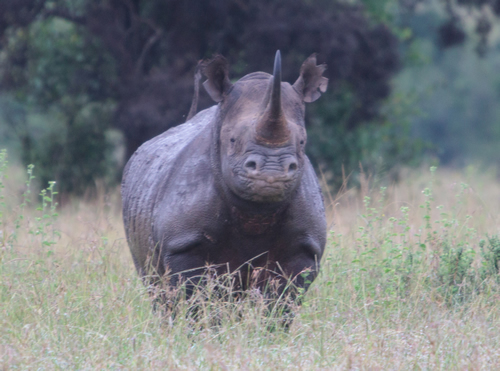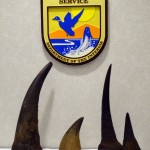
Three suspects identified as Zhifei Li, Shusen Wei, and Qing Wang have been arrested and charged as a result of “Operation Crash”, an ongoing nationwide effort led by the U.S. Fish & Wildlife Service (FWS) and the Justice Department to crack down on rhino horn trafficking.
The arrests of Li, Wei, and Wang bring the number of “Operation Crash” arrests to ten. In February 2012, David Hausman, Felix and Vin Chuong “Jimmy” Kha, Mai Nguyen, Jarrod Wade Steffen, Amir Even-Ezra, and Zhao Feng Jin were arrested.
Zhifei Li, a Chinese national, was arrested in Newark, New Jersey. He conspired to smuggle more than 20 rhino horns from the U.S. to Hong Kong in 2011 and 2012. Li wired hundreds of thousands of dollars to a co-conspirator, who purchased rhino horns and mailed them to Hong Kong and China. Many of the horns were purchased in New Jersey.
In January 2013, Li also purchased rhino horns in Florida, where he was attending the Original Miami Beach Antique Show. Not only did Li purchase two black rhino horns from an undercover USFWS agent, he asked the officer to procure additional rhino horns and mail them to his company in Hong Kong.
Shusen Wei, a Chinese business executive, was arrested in Florida, where he was sharing a hotel room with Li for the Original Miami Beach Antique Show. Wei was questioned after Li’s arrest and admitted that he knew about Li’s illicit activities, and that he had purchased “rhinoceros carvings” which had been smuggled from the United States. He then offered an undercover agent $10,000 to assist Zhifei Li. Wei attempted to leave the country after being served with a grand jury subpoena to appear in New Jersey, and was arrested just before boarding a flight bound for China at JFK International Airport in New York.
Qing Wang was arrested for his role in smuggling rhino horn libation cups and ivory carvings from New York to Li in Hong Kong. He is one of several people who purchased items in the U.S. for Li.
For more information about this case, check out Update on U.S. Rhino Horn Trafficking Case ‘Operation Crash’.
Source: USDOJ




